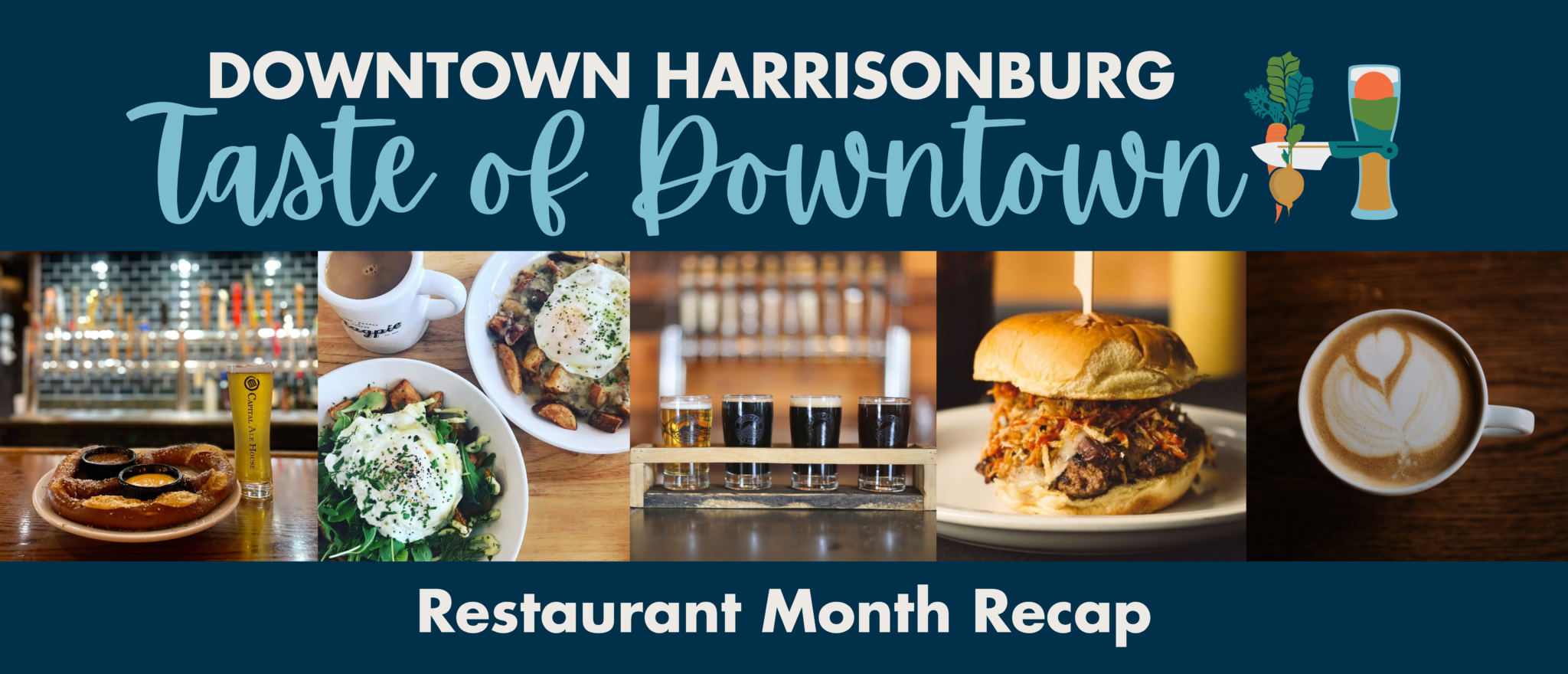It’s official, Taste of Downtown 2022 has come to a close. This year’s festivities were a smashing success, from our Passport and “Flight Night” campaign, to special events like “Make-Your-Own Charcuterie,” to WIN-IT-WEDNESDAY giveaways, to special menu items featured all over Downtown Harrisonburg. Thanks to event participants, generous sponsors like Eugene Stoltzfus Architects and Harrisonburg Radio Group, and all of our local restaurant workers. With them, we were able to celebrate and enjoy Virginia’s first culinary district like never before.
Here at HDR, we had the opportunity to connect with many of the hardworking and passionate people who made all of this possible. Ranging from head chefs to line chefs, bakers to brewers, and managers to support staff, we had so many memorable conversations hearing their stories and seeing their passion first-hand. In this special round up, we have featured all of the stories we captured throughout this month.
What continually struck us was the diversity of talent and experiences each of these folks had. Within the scope of this project, we spoke with classically trained pastry chefs, a recent college graduate, a former teacher turned brewer, a fully self-taught chef, a former marine, and so many more. While every background was unique, many shared qualities became evident as each person spoke proudly of their appreciation for the work they do. We are so fortunate to have such expertise and dedication to such a wide range of crafts right here in the Shenandoah Valley region. We encourage you to take the time to read these inspiring stories and get to know some of the people who make downtown dining so spectacular.
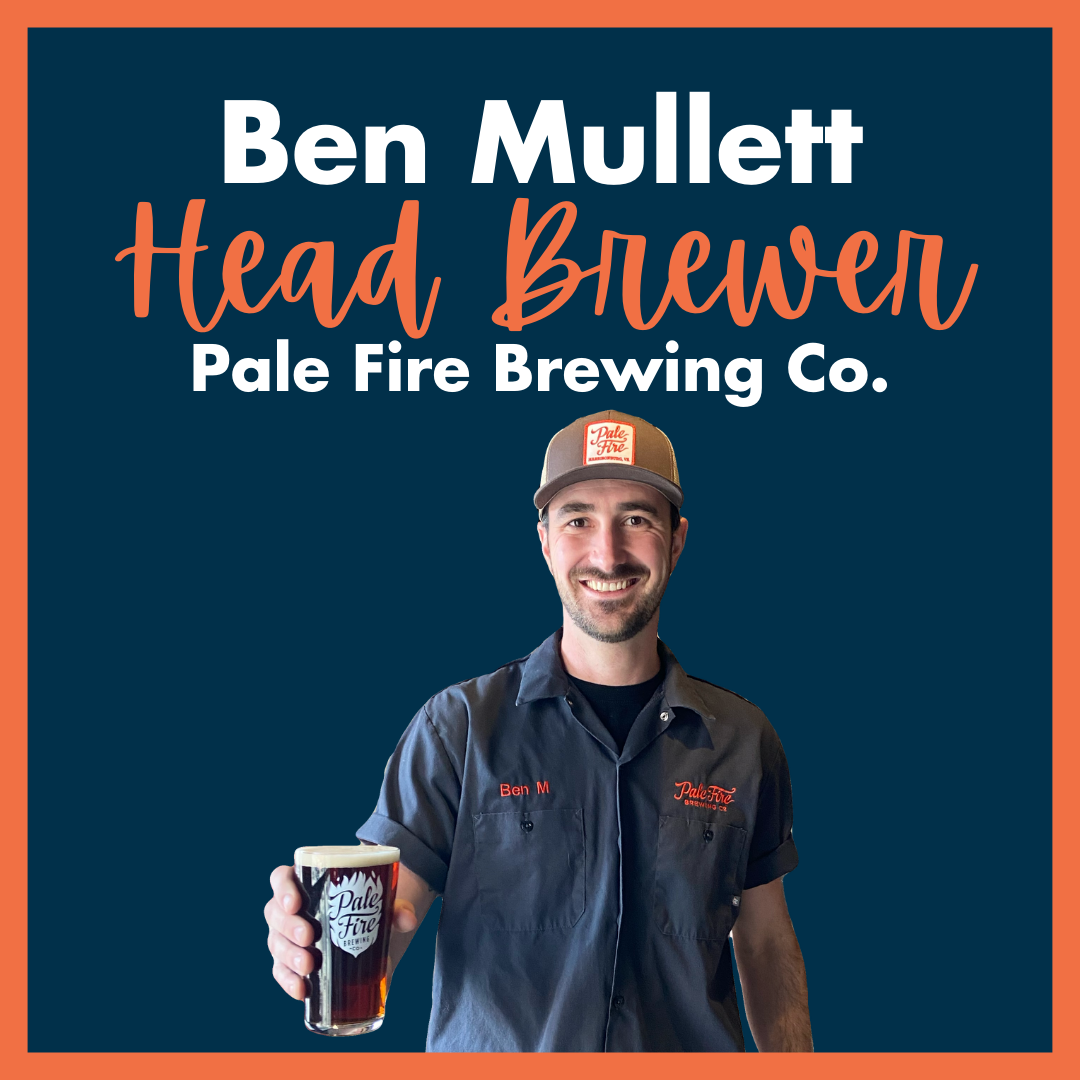
What is your brewer origin story?
“I started up in New Hampshire, in the Marine Corps… When I got home, I got a job washing dishes at a local…brew pub. The Brewer…wanted help cleaning, so I volunteered…which turned into an assistant position with him. I worked under him for about four years, decided I really enjoyed brewing, so I went to school for it.”
What challenges have you faced as a brewer, and how have you overcome them?
“You can make [brewing] really, really scientific or you can make it really, really easy. I…like to blend the science and the art of it, but I’d say that’s [also] a difficult part to it; learning the nuances of things that work and things that don’t [work]. Make mistakes, it happens to everybody…you learn from them.”
What is your go-to beer of choice?
“If I’m going to order a beer, most of the time it’s gonna be an IPA. I like hops mostly for the flavor, not so much the bitterness, but I’d say that’s probably my go-to.”
What advice would you give to aspiring brewers?
“The first few years is hard, you’re not going to start at the top, but if it’s something you’re really passionate about, stick with it. If you have the opportunity, get some sort of certificate or degree. Try things at home. You will make things that
aren’t good; it’s okay. Just learn from it, keep going; it’s definitely worth the time.”
What is your pastry chef origin story?
Erica: “I went to WVU…and got a degree in business. After that, I decided to go to culinary school. Then, I did an internship at Biltmore in Asheville, NC, I got hired, and that’s sort of where my career took off. That’s also where I met Alicia.”
Alicia: “I started working when I was 17, right out of high school. I got a job working at a hotel in the pastry shop there. So, that’s where I got my start. I just worked…my way up. I eventually got a job at Biltmore as a pastry chef. That’s where I met Erica.”
What is your favorite memory as a pastry chef?
Erica: “I just have really good memories, especially at Biltmore. Mostly [because] that’s sort of where I got my start. I really [was] fortunate to have someone like Alicia as my boss and other co-workers around me…that were very supportive. When I left…I felt very accomplished.”
Alicia: “[It] was my first job as a manager/supervisor [at] a place that I worked called, ‘Gaylord Palms.’ We had this huge New Year’s Eve Gala every year…and my chef said, ‘You’re gonna be in charge.’ So, that, for me, was a very big moment where I felt…capable.”
What’s your vision for the future of Bittersweet Bakery?
Erica: “We’re really proud of how we’ve adapted and sort of made things work. [With] retail, you never know, maybe that’s in the future for us. I had a second job for a while, and now I’m fully Bittersweet, and [Alicia]’s gonna get ready to be just Bittersweet Bakery. So, that’s a really exciting time for a business owner when you’re fully self-employed. We’re hoping that will only help us business-wise to be able to take on more and just expand as we can.”

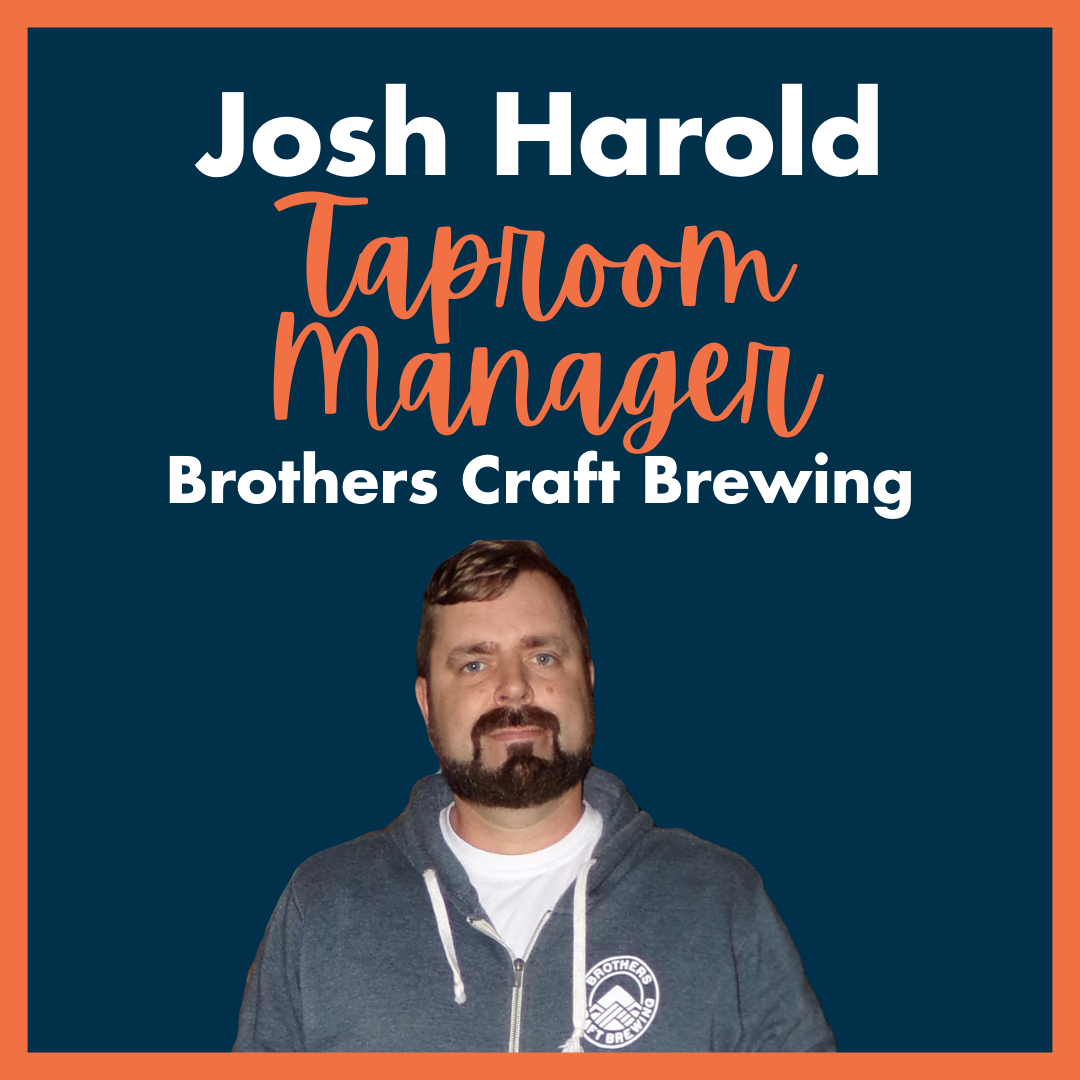
How did you become a taproom manager?
“Through my teenage years and college, I worked in food service. …[Eventually] I went back to school to become a teacher, left the food industry and eight years into my teaching career. I had some health issues that put me on medical leave. At that time, this position was open. And due to not only my background in the food industry, and service industry in general, but also the fact that I was one of the people that walked through those doors on the soft opening in 2012 and was very much a regular here.”
What is your favorite memory working at Brothers?
“The fun thing about working at a taproom is we are constantly doing fun and exciting things. Of the five breweries here in town, we all have our different identities. One of the key pieces to our identity, especially not being directly downtown within walking distance, is creating awesome events. Some of my favorite memories come from some of the events I’ve had a hand in, if not created myself. We do a lot of philanthropy… The model the brothers have always held since day one is that we need to give back to the community as much as, if not more than the community gives to us. We’re just fortunate to be able to make beer for a living.”
What challenges have you faced as a taproom manager?
“You have to learn on the job in any industry… A small business as intricate as we are with our vision and what we do requires [flexibility] and learning on the fly. In my 10 plus years in restaurants, I knew how to tap a keg, but to maintain an entire draft system by taking six to eight hours and breaking the entire thing down, cleaning, scrubbing, and putting it back together was one of the first things I had to learn. That’s kind of the nature of everyday work around here.”
Do you have a favorite beer flavor profile?
“The fun thing about us is we don’t stay stagnant in anything we do. If you look at our brewing schedule for the general public, you’re looking at least eight to 12 beers a year. You know, with a new flagship coming out here in a couple weeks, I’ll put a set of six flagships being brewed at all times. There’s always so much good beer coming through, so it’s very seasonal for me.”
What is your chef origin story?
“My first job in a kitchen…was at Burger King when I was a teenager. They actually made me a manager when I was 18. [Then,] a fine dining restaurant opened across the street from my house. So, I walked over there and talked to…the chef…and started working there. He took me under his wing, and…I worked there until I was 22. I think [being] there is [when] it kinda took off for me. I was like, ‘Okay, this is what I want to be doing.'”
What’s your favorite Montpelier menu item to make?
“I really like it when people order the curry; I like to see people ordering stuff like that. Or the fried green tomato appetizer. I get a lot of compliments on that, [so] I know that it’s a solid dish. So, when someone orders it, I’m like, ‘Yes!’ It feels like a win every time.'”
What advice would you give to an aspiring chef?
“It’s intimidating when you first walk into it, for anyone. It’s a long road that you have to…persevere and push through. It involves a lot of sacrifice and a lot of hard work and determination. You have to be surrounded by people who are also willing to give and sacrifice. It is something that you have to commit to if…[you] decide that you want to do it. If you keep pushing, [though,] you’ll get to where you want to go.”


What is your chef origin story?
“I started my first restaurant position at a yogurt shop… I was an assistant manager in high school and overtime…I went from managing the small franchise restaurants to bigger ones. I lived in Northern Virginia and I moved here for college… studying Information Systems.”
What inspired you to stay in the restaurant industry?
“It’s one of those industries that feels real. I’ve done internships in corporate positions, in offices…and something about it doesn’t feel as natural and in tune with people… [In] the restaurant business, you work with… all different types of people… It just, it feels the most real to me.
What is your favorite memory from working in the industry?
When I was first starting to work here, during the summer time, I was first meeting all the people, all the crew members and it was like, immediately, I had a whole new set of friends. They took me in immediately… I felt like I could be myself here.
What’s your favorite thing on the menu?
“…The caprese chicken… I just liked the presentation to be honest. We get a bit of creativity in the sense that you know who made it based on the way it’s presented.”
What advice would you give to an aspiring chef?
“You have to put some sort of drive and passion behind every dish you’re making. When you’re starting out, you have to remember that you are the gateway between the server and their customers, that everything you do reflects on them, and they need you… I hope… people have a little bit more respect for restaurant workers over time. It’s just something that people never think about. It’s one of those things like, “oh, it’s a labor service job….a non-skill type of job,” even though like it requires a lot of mental capacity and a lot of hard work. I can see how hard especially all of our staff members work… and they kind of feel like they’re not being appreciated… so I always let them know that they’re appreciated.”
What is your origin story working in the restaurant industry?
“I’ve been in this industry since I was 15 years old. I was maybe a sophomore at JMU…when I got hired as a host here. Next month will be 10 years. I’ve kind of been through it all: hosting, serving, bartending, [and] now managing. Just kind of adding jobs to my plate along the way.”
What is your favorite memory of working at Clementine Cafe?
“[One] of my favorite times here [was when] we shut down for the Super Bowl, and the old owner, Clay, would roast a pig. It was kind of just…a lot more employee appreciation events than I was used to. So, that was always fun.”
What is your favorite Clementine Cafe menu item?
“Probably our ramen; I’m a big noodle fiend. You know, anything with pasta. One of our chefs right now; [ramen’s] kind of like his baby. He makes the broth from scratch, and that’s delicious.”
What advice would you give to someone who’s looking to start a career in this industry?
“Find a couple people that you trust and have that same…hunger and drive [and] passion to do what you do. Even in the hard times, you can trust them and work together to support each other.”


What is your cider-making origin story?
“[It] started as a hobby, grew into a large hobby. Eventually, we made the jump. It wasn’t quick, but…Amberlee, my wife, and I were chatting and were like, ‘Man, I wish there was a Cidery in Harrisonburg.’ So, I took classes at Portland State University in the Business of Craft Brewing. [I] did that as kind of an exploration…of, ‘will this work?’ Came out the other end of that thinking, ‘yeah…I think it will.”
What was your inspiration in calling it, ‘Sage Bird’?
“A lot of what we do is focused on Virginia, and…we only use ingredients and flavors that could be grown in this area. One of our taglines is, ‘Taste the Virginia Mountains.’ We knew we wanted to use the Cardinal, the Virginia State Bird because…we’re very much focusing on local…Virginia cider.” It’s Sage, as in ‘wise.’ Wise as in like, ‘Wise, old bird.’ Cider is a very old beverage. There’s a lot of knowledge, history, and…tradition to making cider. So, we wanted to honor that.”
What’s your favorite memory of Sage Bird Ciderworks?
“We always set out to be community-centered here. We’re very much…embraced by the Harrisonburg community. We’ve grown a ton, and appreciate…what we’ve gained…from this community. Every time that we host an event and people are here having a good time; that is what makes me super stoked. That is what makes me excited, is knowing that…my wife and I and our staff created a space that brings joy to people.”
What advice would you give to aspiring cider makers?
“Taste…as much different cider as you can. It broadens your palette; deepens your palette. And then, practice. I started making stuff in literally a plastic milk jug, so you gotta start somewhere. If it’s something you’re excited about, if there’s something that is a passion for you, I can’t guarantee that it’s gonna work, but if you don’t pursue [it], you’ll never know.”
What is your chef origin story?
“I’m not even from Virginia. I started cooking in Arizona, and that’s a much larger restaurant scene as a whole because [those are] such large cities. I got a job so I could go to punk shows at night and have a little pocket money, and I just kind of ended up loving it. And here we are.”
What is your favorite menu item to make?
Here [at Capital Ale House] I really enjoy either the steaks or making the turkey bacon brie, it’s just such a pretty sandwich when you stack it and kind of sort the cheese out and goes to the table looking really nice. And then at home, given the fact that I was born and raised in Arizona, a ton of Mexican food.”
What is your vision for Capital Ale House?
“We’re just trying to be more successful than the day we were before. In the last few years, [we] were able to really raise business up pretty significantly and given the fact that we are such a big restaurant, we were able to make it through pandemic, I think that’s impressive.”
How would you describe your dream restaurant?
“In a perfect world? Probably something kind of like this, but a little smaller, more intimate, and probably higher end items. Probably up north a little bit, maybe outside of DC or back in Phoenix.”

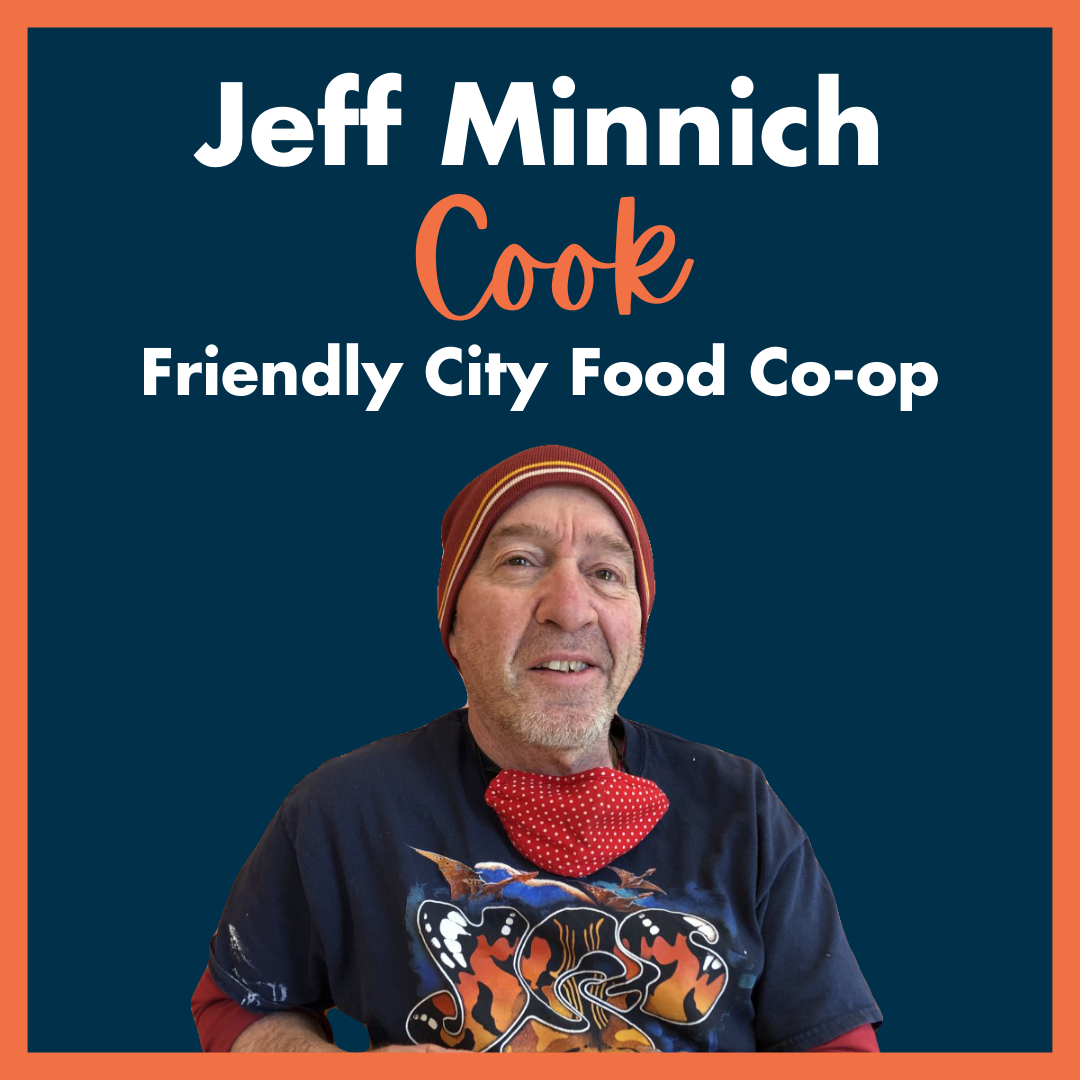
What steps did you take to become a chef?
“I studied, and I used to have flashcards. I had a French reference book called ‘Larousse Gastronomique,’ that cost $60, [which] to me was a fortune. I bought books, I watched YouTube, I went to restaurants, and I learned how to do it.”
What’s your favorite food item to make?
“I love frying food. I love making fried chicken. I love dark fried egg rolls, duck rolls, spring rolls. I like to fry nori rolls, I like to fry sushi. It’s [like] a different dimension…It’s crisp; it’s crackly. I love [it].”
What challenges have you faced as a chef, and how have you overcome them?
“When you’re starting, it’s hard to make enough money to live a sustainable kind of life. I work two jobs sometimes. I couldn’t afford to go to school; I had to have on-the-job training. You have to [find] people who will teach you. Honestly, I’ve learned a lot from chefs, but I also learned a lot from dishwashers. If you [find] people to do that, you can get a pretty well-rounded education.”
What is your restaurant industry origin story?
“I started at 15 years old working as a host in a corporate restaurant…and it was just kind of fun to me; it was easy money. I continued to work with them when I…wasn’t able to get a teaching job. I just stayed in in it and became a bartender and then became a shift manager and started managing a little bit more. The irony behind all of it was that I found that I got to use my education degree every day. It may not have been music, but it was still teaching. And from that, the passion for education and leadership kind of followed through. Now, the passion is…to help educate and train leaders and [promote] them in the food and beverage industry.”
What challenges have you faced working in this industry?
“The previous restaurant that I worked at…experienced three different floods. We had seven feet of water in the basement, and it was similar to…dining on the Titanic. It’s really kind of crazy, but it’s those random things that you have to manage through that you never expect.”
What is your overall goal for working in this industry?
“For me, something that’s developed within this company and working for Hotel Madison…would be becoming a corporate trainer for the company itself, being able to go into different concepts and help fix problems or build out programs. That would be the ultimate goal for me.”

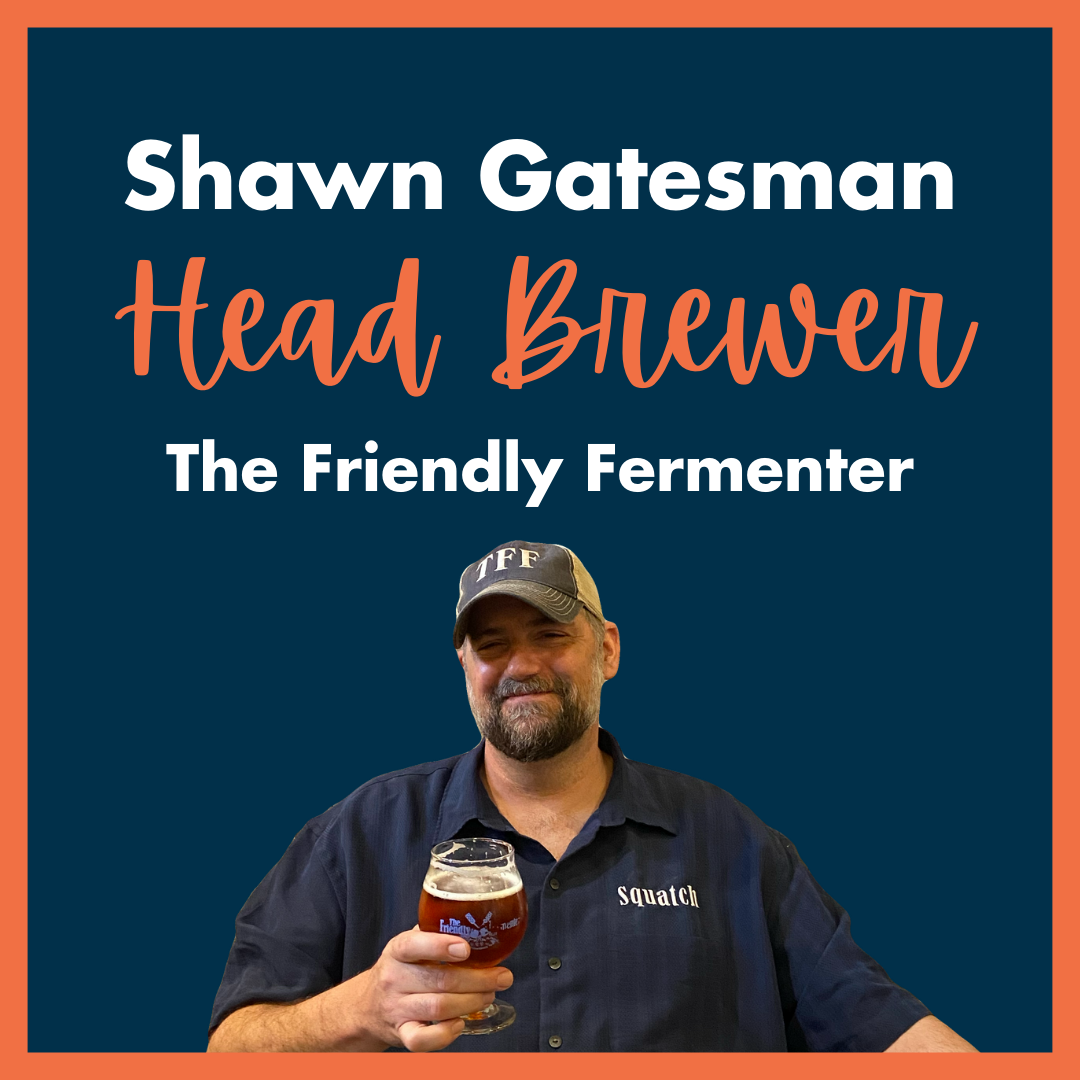
What is your brewer origin story?
“In 2013, we…were living somewhere where there were wine berries growing. So, we started messing around with those…and I decided I would try to make some berry wine. And literally in two liter soda bottles as my fermenters. In researching that, I stumbled on YouTube videos and stuff of doing very rudimentary home brew and with the same sort of setup. I found that when I made some decent beer…my brothers and friends were like, you know, ‘you made this this is really good.’ I found that it was somewhat addicted to…like making something that people enjoyed and watching them enjoy it. [In the] fall…of 2017, I opened the Fermenter.”
What challenges or surprises have you faced while owning The Friendly Fermenter?
“…For me…I always planned on being a big part of my business, both behind the scenes and in and day to day… That was, you know, how this thing really got its start, because a lot of people didn’t already know me. And I already had three children and a family and wife…So, I had all these things. I knew that finding a balance and all that that was healthy for me, and therefore healthy for my family and the brewery, because…I’m so involved [here] that if I’m not well, physically or mentally, it’s going to have a trickle down effect on this place.”
What advice would you give to aspiring brewers or business owners?
“…Make sure that you are doing it for the right reasons, the reasons that will last. And it’s going to be harder than you think. I think there’s a reason an exuberant number of businesses fail; I think a lot of people…don’t really know what they want. Or maybe they’re just too young in their life, and I don’t necessarily mean years. A 35 year old can be nice and good a shape to start as his or her own business as a 22 year old.”
How did you become a brewer?
“I kind of fell in love with the downtown scene when I was a junior/senior at JMU. And then after I got back from grad school, I was just kind of like, yeah, I miss Harrisonburg. It’s an awesome town. It was the first place I felt like I had a community…so I came back. I mean, the craft beer scene was kind of an instant community right there. So I just kind of joined that and loved it ever since.”
What is your favorite memory from working at Brothers?
“Some of my favorite times are always our big event days, and then finally getting to it… all the stress leading up and then just being relieved after everything goes really well. We run the events, they’re attended well, and the beers are received well, and then just like being able to chill afterwards and being like, wow, yeah, that was awesome.”
What challenges have you faced as a brewer?
“Definitely wearing a lot of hats. It’s a small business, and I was looking forward to that piece coming back here. And like, I knew that it wasn’t just going to be a typical service industry job coming into bartending here… Any part of the business is kind of anybody’s territory around here. So everything’s a challenge. Everything’s fun, and [it] keeps things interesting.”
What advice would you give to an aspiring brewer?
“Everywhere you go, you just [have] to get your foot in the door. I mean, I didn’t really know what part of the brewing industry I wanted to be in… It’s so tough nowadays with how saturated the market is, so that you just have to find a way in, for me it was bartending… That’s the cool thing about craft beer, you can just pick whatever vibe you want. It can go from corporate to mom and pop shops.”

Thank you to this year’s generous sponsors:



